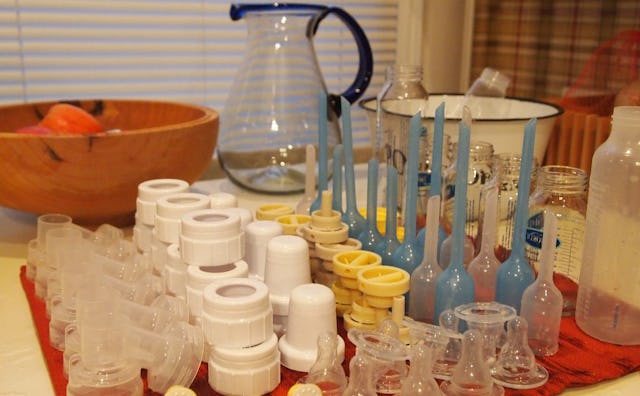Seeking the Bigness in the Everyday

Now, nearly five years later, in this middle part of my life, I find myself struggling with the repetitive, small tasks. I enjoy the bigger cycles: the changing of the seasons and the familiar promises they bring, the rhythm that accompanies the turning of the calendar page, the knowing that with the unknown future there will always be some sameness—weather, holidays, birthdays, school seasons, work seasons, sports seasons, the coming and going of birds.
I recently came across a passage from Voices by Ursula K. Le Guin:
“I always wondered why the makers leave housekeeping and cooking out of their tales. Isn’t it what all the great wars and battles are fought for—so that at day’s end a family may eat together in a peaceful house? The tale tells how the Lords of Manva hunted and gathered roots and cooked their suppers while they were camped in exile in the foothills of Sul, but it doesn’t say what their wives and children were living on in their city left ruined and desolate by the enemy. They were finding food too, somehow, cleaning house and honoring the gods, the way we did in the siege and under the tyranny of the Alds. When the heroes came back from the mountain, they were welcomed with a feast. I’d like to know what the food was and how the women managed it.”
There is nothing exciting about washing the morning’s skillet or feeding the dog. It is completely foolish to expect someone to say “good job” when you’re folding the tenth t-shirt or cleaning up the spilled applesauce. Housekeeping and cooking are background actions, set decorations for all the big moments and big conversations in all the big movies, big books and big plays. And often, it’s not even shown. It’s just expected, just there, as it has been throughout time. It’s a given that sheets will be changed and the almost-empty toothpaste tube will be replaced and the apples will be sliced and someone will wash the cups over and over and over again to quench the thirsty characters.
People talk about housekeeping, but so often in the form of funny memes: a woman dressed in Victorian garb slumped in a chair, one hand across her forehead and the other holding a glass of wine. Or they say, “A clean house is the sign of a misspent life.” Perhaps to an extreme. But realistically, away from the fantasy world that exists online, you have to wash the cups. You have to clean up the spilled applesauce. You have to do the laundry so that your family may have clothes to wear.
I have long lived a life of always wanting more. There are flaws in this philosophy. While this want pushes me to keep writing (for example), it also makes mopping the floor, at times, so damn hard. Not physically, but mentally and emotionally. And yet, I truly believe it is the quiet work, which gets done without acknowledgement or praise, and, more importantly, without its doer needing acknowledgement or praise, that keeps everything in motion. And so, thinking about it in that way, perhaps I am doing big work, even when that work is simply mopping the floor.
So I find myself searching for contentment in this stage, this cycle of my life. Yes, there will always be laundry to do and meals to prepare, but with three little ones, it’s so much more. It’s more time-consuming, more things to do every day, more effort when accomplishing small tasks against the background noise of other needs—to play, to get some milk, to fasten a Batman cape, to find a lost glue stick.
And, in a frustrating yet funny way, I know I will miss this, too.
My son Owen loves to help me with laundry. It takes longer, but I don’t mind. He talks to me about school and classmates and TV shows and asks me big questions about life as he hands me shirts and pants, and takes it upon himself to put all the socks in a separate basket.
All three children love to help me cook. They ask so many questions and argue over whose turn it is to pour and inhale the scent of vanilla and cinnamon as if nothing in this world smells better. And when cooking alone, I often, lately, find joy in that, too. The sound of my knife slicing through the shallot on the wooden cutting board. The smell of garlic browning in olive oil. The contentment that comes when lighting the candles for a dinner I’m so lucky to share with those I love.
Still, often it’s difficult to embrace and appreciate and do what’s necessary for this small and short life of ours to keep cycling while also leaving plenty of time for the bigness of everything else that’s life. But it helps me to think that even the small tasks may really be the big things, the sturdy framework for the finished product, the clean canvas for the masterpiece, the organized outline for the great novel. These thoughts I hold dear while dumping the dirty water down the drain.
“You’ll come to learn a great deal if you study the Insignificant in depth.” —Odysseus Elytis
A version of this story originally ran on the author’s blog.
This article was originally published on